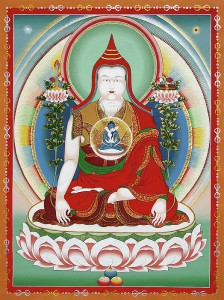The following is respectfully quoted from “Kindly Bent to Ease Us” by Longchenpa:
A Unique Occasion at the Right Juncture
Traditional philosophy has been dominated by the contrasting ideas of essence and existence. Essence is said to be that factor in finite entities which determines them and marks them off from others, while existence is the act that makes them actual and separates from nothing. As the determinate whatness of finite entities, essence was further conceived to be something universal, timeless, and inactive, and the various essences of the multiplicity of finite entities were held together by necessary logical relationships. All this led to the construction of conceptual systems, and to the assumption that essence preceded existence in the case of man determining his nature, which remained fixed for all times. Similarly existence was tied up with particular entities. When in more recent times it was claimed that existence preceded essence and that in the act of existence man determined his own essence, this existential reversal of the essentialist trend did not change the basic conceptualism.
Whether we give precedence to essence or existence, we deal with an abstraction, and this means that we have taken something smaller from something greater. It is a fact that the greater can never be caught by or reduced to the smaller. It cannot even be pointed out. Attempts to do so are more often than not attempts to dwell on elements which are merely ingredients, aspects of rationalization upon which the construction of a conceptual system rests, but which in a work of art is known as beauty and in a life situation as Being.
While we cannot point out beauty or Being, we can point to it and this pointing may help people to experience for themselves this something greater. Such pointing is indicated by the use of word ‘Being’ which is the most universal of concepts, for it covers anything and everything — even ‘nothing’ which, in the sense that it is spoken or thought, is something. Beyond the domain of this concept there is, in the strictest sense of the word, nothing more on which ‘Being’ could rest and on the basis of which it could be more specifically determined. This is tantamount to saying that the more comprehensive a concept is the more indeterminate and ’empty’ is its content. There is ‘nothing’ of either essence or existence in it, and yet there is the awareness and feeling of ‘Being’ in the sense that ‘Being’ is awareness and awareness if feeling.
Of course, terms like ‘awareness’ and ‘feeling’ are quite inadequate. We have the tendency to say that we are aware of something and we tacitly assume that this something is always something finite, as is the awareness itself. The same applies to feeling, as when I say that I feel happy or comfortable, unhappy or uncomfortable. What we have done in all these cases is that we have made up a concept and, in our efforts to bring the something greater under the concept, we have attempted to make it something smaller and have quite literally strayed away from it into fictions of our own making–whether we call it ‘essences’, ‘existences’, or ‘minds’. It is as if, and it seems almost inevitable to do so, we were desperate to fill nothingness, the ’emptiness’ of Being, with ‘essences’, fundamental characteristics, and to replace pure awareness by distinct acts of cognitions. However, rather than to see we ‘fill’ nothingness it seems more correct to say that we tend to ‘falsify’ ‘Being’ into some sort of ‘existent’ which we then further split up into essence and existence, and to ‘falsify’ Mind (as a pointer to awareness that is Being) into ‘some’ mind which also is split up into a mind and mental events. Thus the openness of Being is lost, its sheer lucency becomes dimmer and dimmer until it is as dull as the ‘existents’, the objects it deals with as a mind.
This falsification, however, makes us uneasy. This uneasiness not only signals the fact that something, somewhere, sometime has gone wrong, and that something has to be done about it, it also makes clear that what is at stake is man’s humanity which cannot be defined in terms of ‘essences’ but is inseparable from, if not identical with, Being, to which, in the context of man’s being human, the name ‘Buddha nature’ is given.
Insofar as Being operates through a human existence which illustrates this working of Being as the rediscovery of Being by itself, a human existence is a ‘unique occasion’ and ‘right juncture’. To the extent that Being is allowed to penetrate man’s ‘existence’ and return it to ‘Being’ , to heal the wounds of fragmentation and to restore the wholeness of Being, a human existence is precious. This means neither more nor less than that the presence of something already there, and the direction and scope of the question (and the quest) of being human, are determined by the question and the quest of Being, which aims at making the meaning of Being explicit through its immediate experience.











